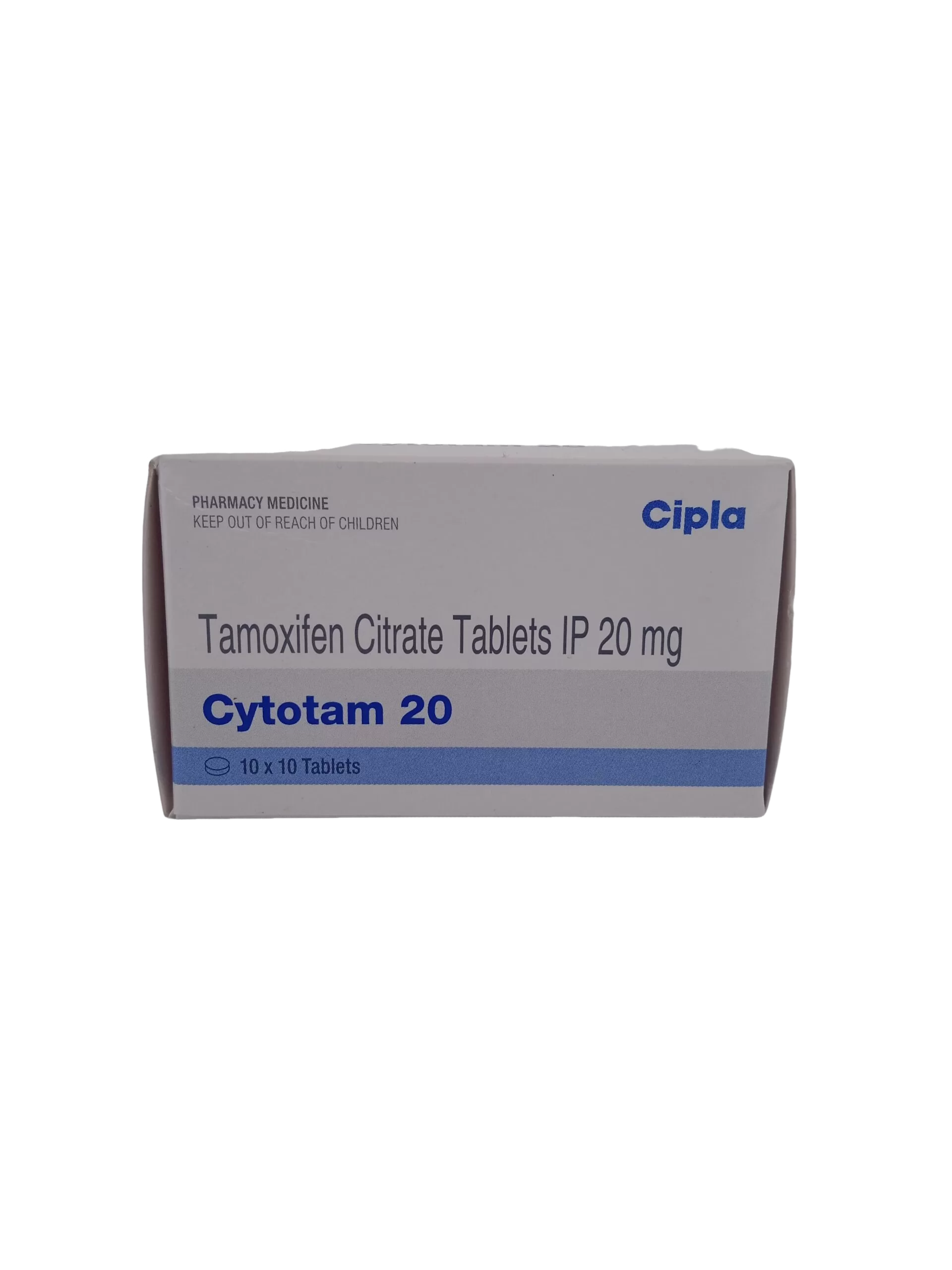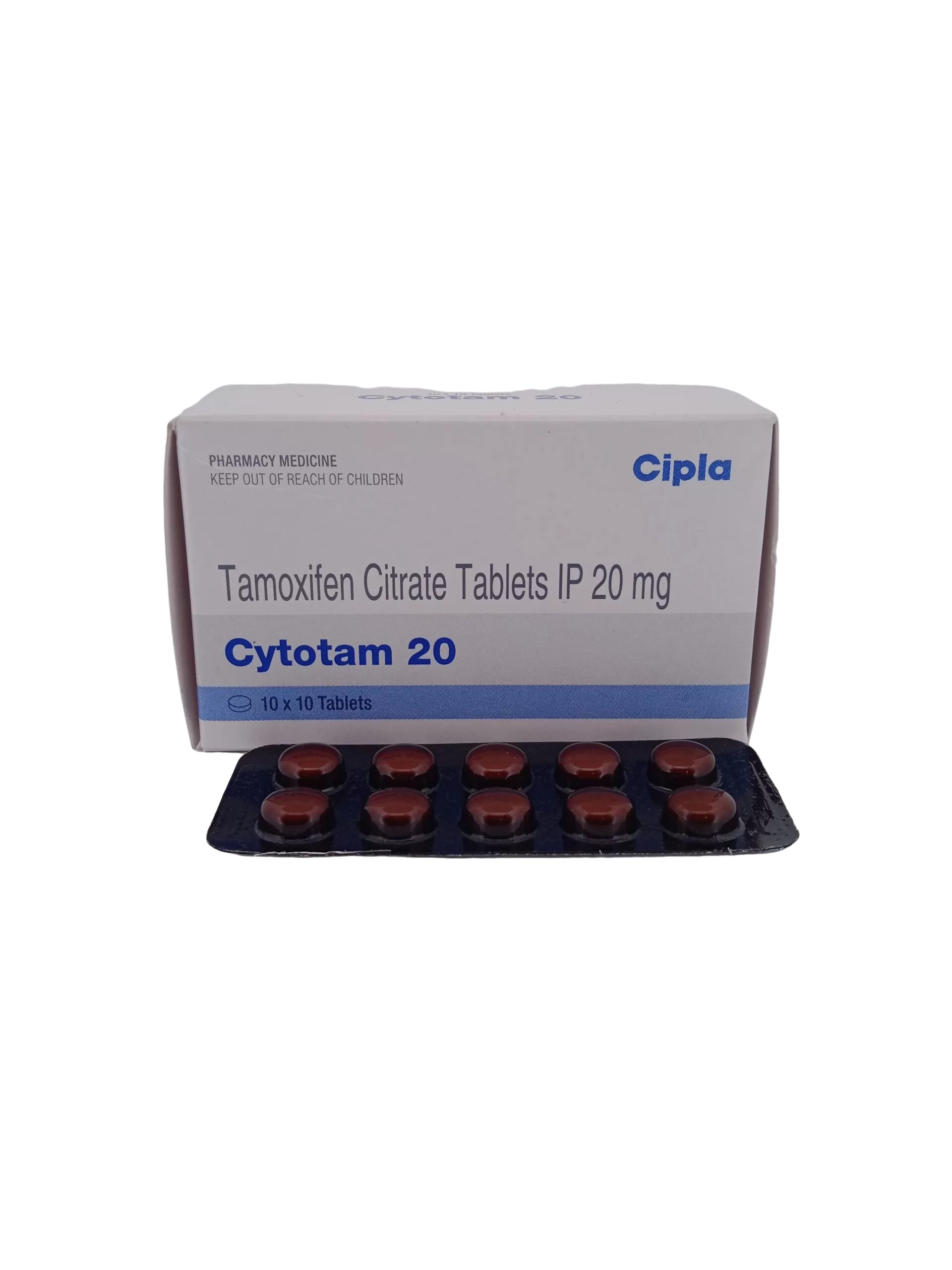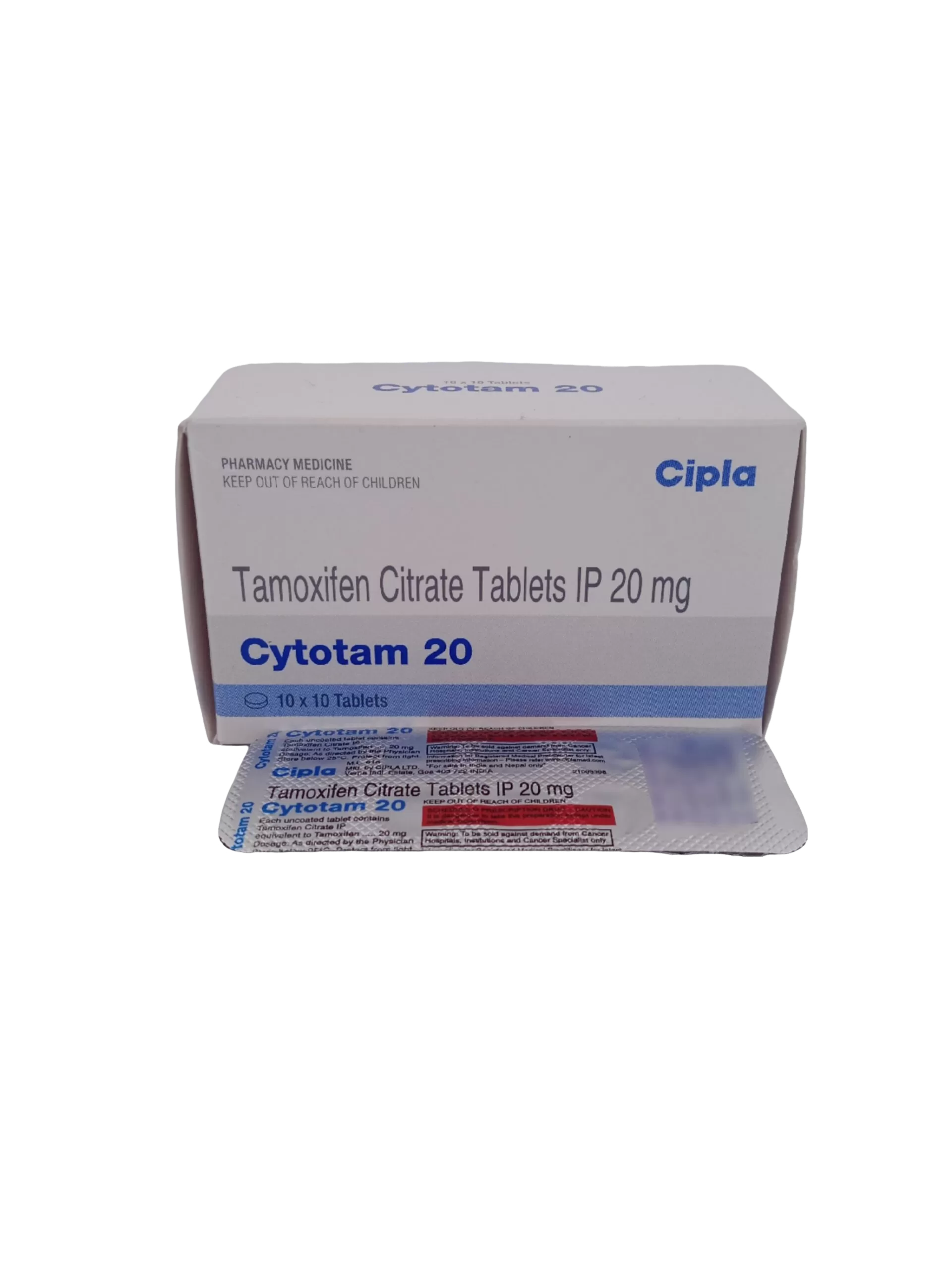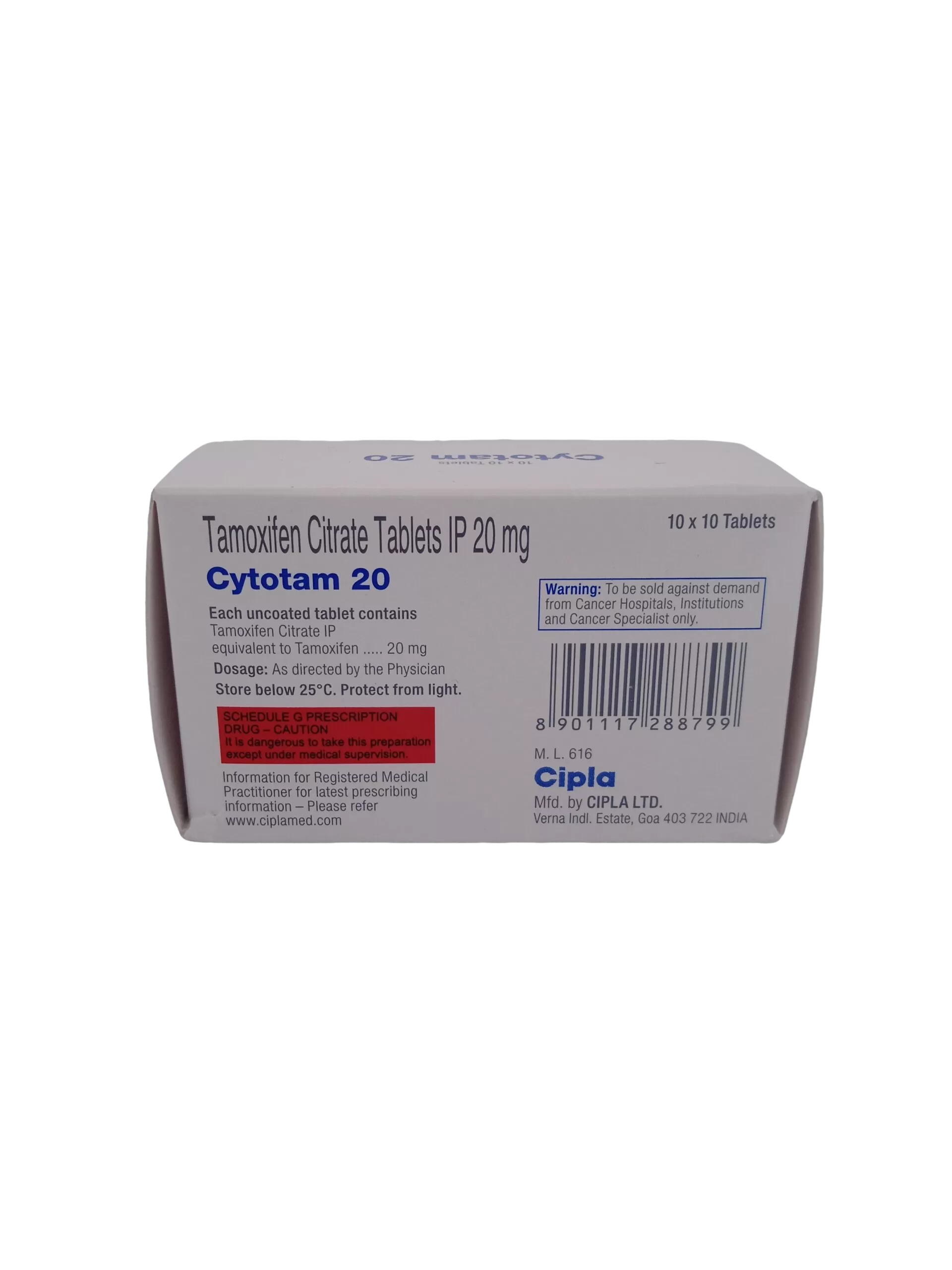CYTOTAM 20 MG – 10 TABLETS: Comprehensive Guide and Benefits
Introduction to CYTOTAM 20 MG – 10 TABLETS
Cytotam 20 mg (Tamoxifen) – Hormone Therapy for Estrogen Receptor-Positive Breast Cancer
Cytotam 20 mg, containing tamoxifen, is a highly effective hormone therapy used in the treatment and prevention of estrogen receptor-positive breast cancer. By blocking the effects of estrogen, tamoxifen helps reduce the risk of cancer recurrence and aids in promoting recovery. This medication is specifically beneficial for patients diagnosed with hormone receptor-positive breast cancer, as it targets the growth of cancer cells fueled by estrogen.
How Cytotam 20 mg Works: Cytotam 20 mg works by inhibiting estrogen’s ability to stimulate the growth of certain types of breast cancer cells. It is commonly prescribed to patients with early-stage breast cancer, those who have undergone surgery or radiation, and individuals at high risk for cancer recurrence.. This product is carefully formulated to provide effective results while ensuring safety and ease of use.
Key Benefits of CYTOTAM 20 MG – 10 TABLETS
Effective Action – Works efficiently to deliver intended results.
High-Quality Ingredients – Formulated with trusted components for maximum effectiveness.
Safe Usage – Designed for optimal use with minimal side effects.
How CYTOTAM 20 MG – 10 TABLETS Works
The active ingredients in CYTOTAM 20 MG – 10 TABLETS work by targeting key mechanisms in the body to provide the desired benefits. It is widely recommended for its efficacy and safety.
Usage Instructions for CYTOTAM 20 MG – 10 TABLETS
Dosage – Follow the prescribed dosage or as directed by a healthcare professional.
Administration – Best taken at the recommended time to maximize effectiveness.
Precautions – Avoid exceeding the recommended dose and consult a doctor if necessary.
Medicinal Advantages of CYTOTAM 20 MG – 10 TABLETS
Reliable Results – Proven to deliver desired outcomes.
Supports Health – Helps improve well-being with consistent use.
Minimal Side Effects – Designed to reduce adverse reactions.
Off-Label Uses of CYTOTAM 20 MG – 10 TABLETS
While primarily used for its main purpose, some users have reported additional benefits in related health areas. Consult a healthcare provider for more information.
Expert Advice for Optimal Use
Consultation – Always check with a doctor before use, especially if you have existing health conditions.
Safe Storage – Keep in a cool, dry place away from children.
Avoid Misuse – Use only as directed to prevent complications.
Storage Instructions
Temperature – Store at room temperature, away from heat and moisture.
Safety Precautions – Keep out of reach of children and pets.
Frequently Asked Questions (FAQs)
Q: How soon does CYTOTAM 20 MG – 10 TABLETS take effect?
A: The effects vary but are generally noticeable within a reasonable timeframe.
Q: Can I use CYTOTAM 20 MG – 10 TABLETS daily?
A: Usage frequency should be based on professional medical advice.
Q: Is CYTOTAM 20 MG – 10 TABLETS safe for pregnant or breastfeeding women?
A: Consultation with a healthcare provider is recommended before use.
Q: Are there any side effects?
A: Most users experience minimal or no side effects when taken as directed.











